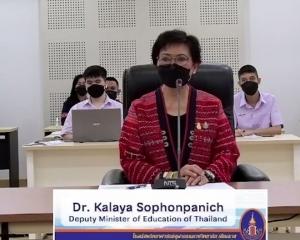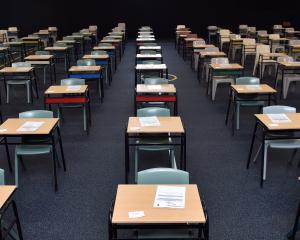New research shows nearly half the 125 primary and 30 secondary schools studied by the Education Review Office this year were not adequately monitoring or evaluating their initiatives for helping low performing pupils.
The ERO report, titled Schools Provision for Students at Risk of Not Achieving, showed schools were doing "very good work" in identifying pupils who were at risk of not achieving - particularly in literacy and numeracy.
However, the report said nearly half the schools in the study needed to improve the ways in which they addressed specific pupil needs, and the way they monitored, reviewed and reported on the progress and impact of their provision.
A similar number had yet to evaluate the extent to which their programmes resulted in improved outcomes for at-risk pupils.
"Schools make a significant investment when employing auxiliary staff such as teacher aides. Boards need to have a clear rationale for the programmes that they provide and they need regular information about the use of additional staffing, and what impact these programmes have for at-risk students.
"Boards need this information to determine the effectiveness of their investment," the report said.
New Zealand pupils achieved well by international standards, but the report said there was wide variance in the achievement of learners.
This signalled the need for a strong focus on good quality, evidence-based teaching for all pupils, and particularly for the 15% of pupils who are performing at the lowest literacy levels.
ERO chief review officer Dr Graham Stoop said every school population had a whole spectrum of abilities and talents among its pupils, but it was the job of school boards and principals to provide an education to suit all their pupils.
ERO found effective schools had five characteristics of good practice.
They were well led, with the principal and senior leaders taking a key role in setting the direction and providing cohesion for the school's approach.
Effective schools had well co-ordinated systems which enabled support to be targeted to those pupils most at risk of not achieving.
The most successful initiatives involved inclusive approaches, most often undertaken in the classroom.
Good quality professional development was available for teachers and schools had effective processes to engage the parents in their child's learning.
"ERO has found good practice in schools in New Zealand. We hope that this new report will assist schools in their work with the pupils they deem to be at risk of not achieving well," Dr Stoop said.
Otago Southland Principals Association chairman Mike Corkery said he had not seen the ERO study yet and declined to comment until he had.











